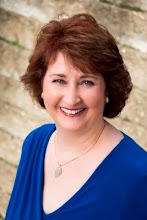Have you ever wondered why it seems that a lot of time elapses between books from authors of historical fiction? It can feel like a long frustrating wait, especially when authors of many other genres seem to pump out books at lightning speed. There are several variables that determine how much time it takes to write a book such as the speed at which any given author writes, the amount of outlining (or lack thereof) done ahead of time, and the number and depth of revisions to name a few. But for most authors of historical fiction, the preliminary research can easily take just as long as the actual writing of the book. Sometimes, longer. This is not to say that authors of other genres don't do any research. They do. But historical research seems to be naturally more in-depth.
I usually take anywhere from six months to a year for research before I even begin to write. Once I start writing, I will still stop several times for more research because something invariably comes up that I didn't realize I was going to need to know about before I started.
So what does that initial research look like? Maybe I'm a bit old school, but I still favor using books for research so that's where I start. Right now I'm in the research phase for the next Irish book (so those of you who are fans of Kelegeen and Erin's Children, there will be a third and, most likely, a fourth book with these characters). The next book will be set during the American Civil War. Even though the setting is Worcester, Massachusetts, some characters will go to fight in the war and at least one of them will be a POV (point of view) character. So part of my research is on the Civil War in general then narrow in to focus on the regiments that were sent from Worcester and the battles in which they took part.
I will also need to know about everyday life in the 1860s including foodways, how holidays were celebrated (Christmas was finally becoming a "thing" in New England by then), fashion, etc. I'll need to know what was happening in Worcester during that time which I will learn about from reading the City's annual reports for that decade. Women were becoming more independent so some of my non-Irish female characters may take up employment. I will need to know where they might have worked and what that was like for them.

The books being used for research for my next Irish novel (yes, all of them!)
While what I plan to write determines what I will need to research, my research also informs what I will write. As I do the research, I often come across something very interesting and decide I want it in my story. Then I may need to learn even more about it. The research and the writing are co-dependent in this way. There are a lot of rabbit holes one can go down while researching. Fortunately, most of them lead to something that can be used, if not in the current manuscript, then in a future one.
I do not stop at books, though. I will also include websites, trips to museums (I foresee several to the Worcester Historical Musuem), chats with Tom Kelleher, my dear friend and favorite historian, and whatever else presents itself as needed.
Like most authors of historical fiction, I strive to create books that are as historically accurate as possible while also being stories in which my readers can totally immerse themselves. And that, dear readers, takes time.












I've enjoyed your historical novels and the research you've done. No matter what genre one writer, there is always research to be done. Looking forward to your next book
ReplyDeleteI spent years researching my Curse of the Lost Isle series before I started writing. Fortunately, I enjoy doing research. I also appreciate any author who does a lot of research. It anchors the story in the time period. And I like learning historical details as I read fiction.
ReplyDeleteAh the research! Not tiresome at all when it brings authenticity to characters and scenes. Keep writing!
ReplyDelete